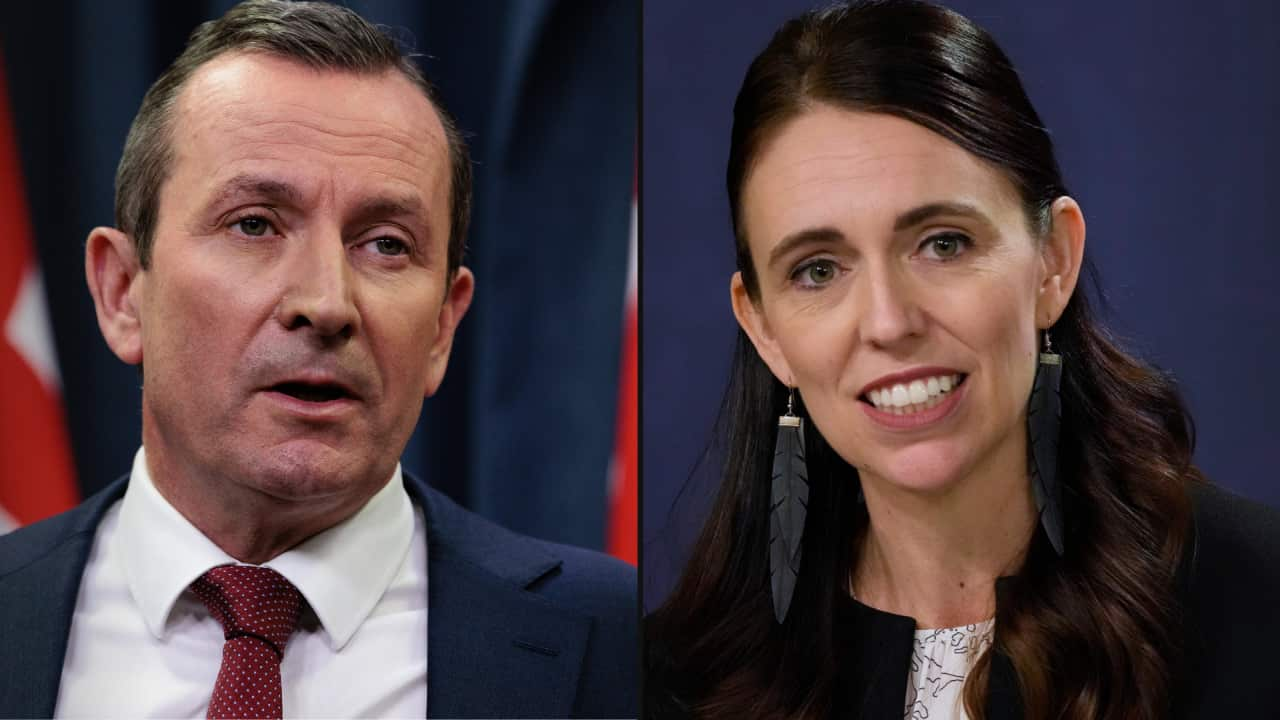KEY POINTS
- WA Premier Mark McGowan and former NZ Prime Minister Jacinda Ardern referenced burnout in their resignation speeches.
- Workers in "high stress and high performance" environments are typically more vulnerable to burnout, an expert says.
- Taking a holiday might not be the simple burnout fix some think it is.
What did Western Australian Premier Mark McGowan and former New Zealand Prime Minister Jacinda Ardern's resignations have in common? They both cited burnout as driving their decisions to step down.
As he , including six as premier, Mr McGowan was asked how "" had affected his life. The outgoing leader replied it had manifested as "sleepless nights" and "excess worry about things".
Ms Ardern didn't directly reference burnout , but she did say she no longer had "enough in the tank" — a comment widely interpreted by the media as alluding to it, and according to one expert, a feeling it is typically associated with.
It's not just those in politics who experience burnout. The "insidious" issue can affect those in many industries, but there are ways to manage it.
What is burnout?
It's an "occupational phenomenon", not a medical condition, according to the World Health Organization's (WHO) 2019 definition.
The WHO says it typically presents as exhaustion, negative feelings towards one's job, and reduced professional productivity — a characterisation also given to it by experts SBS News spoke to.
Put simply, it's "mental, physical, and emotional exhaustion" typically brought on by being relentlessly overworked, said Philippa Specker, a clinical psychologist and PhD candidate at the University of NSW School of Psychology's Refugee Trauma and Recovery Program.
"So a good way to think about it would be your fuel tank being depleted, and not just for a day, but for a long time," she said.
"It might look like tension headaches, a lot of fatigue ... you might be getting sick much more often than the people around you," she said.
"And there might also be a reduction in your emotional health, so over time, you might notice you're developing a negative outlook; you're feeling cynical towards your work or the people your work for.
"You might also feel less satisfied and less motivated in your work and have feelings of detachment."
Others might notice you're experiencing burnout before you do, said Michael Musker, an enterprise fellow for the Mental Health and Suicide Prevention Research and Education Group at the University of South Australia.
"People will start to notice and ask if you're overdoing it, or saying you look tired," Dr Musker said.
"It starts to be noticed in your personal life."
Who is susceptible to burnout?
A — conducted during the COVID-19 pandemic — by the global consulting firm, McKinsey and Company, found 61 per cent of Australian respondents sometimes felt burnt out.
Dr Specker said those working in "high stress and high performance" environments are typically more vulnerable to burnout, as well as roles where an individual has major responsibilities.
"Another would be when you don't have a lot of control over your workplace; so you can't really control the stress that's coming in," she said.
She said some professions that "fit the bill in an obvious way" include politicians, health workers, teachers, and public servants.
"But any workplace that is really unrelenting... it's certainly an environment where you would want to be more attuned to that [the risk of burnout]," she said.
How can you manage burnout?
"You need to create boundaries between your job and your personal life," Dr Musker said.
He said simple ways to do this include, if you are able, switching off your emails when you're not on the clock, and not working outside of business hours.
Exercising regularly, practising , cutting down on alcohol, and maintaining proper sleep hygiene were also important.
"That means a very set routine for your sleep ... so you have a consistent pattern," he said.
"And don't check your phone one hour before you go to sleep ... it's a case of switching one hour before bedtime."

Burnout typically presents as exhaustion, negative feelings towards one's job, and reduced professional productivity, according to the World Health Organization. Source: Getty
"So that means when it comes to managing it, the last thing someone needs is ... for people to turn around and say 'just take some time off and calm down'," she said.
Taking a holiday isn't the simple fix some might think it is, Dr Specker said, as those who are burnt out often need to "regain balance".
"It's less about what you should stop doing and more about thinking, 'What am I not doing enough of?'," she said.
She also said it was important to reconnect with friends, family, and colleagues.
"So you are able to flag with supportive people in your life ... that you are feeling overwhelmed and overworked," she said.
"Because when you are burnt out, it's very hard to make decisions or work out what needs to change in order to feel better, so being able to recruit other people to help make those decisions and small changes is immensely helpful."










